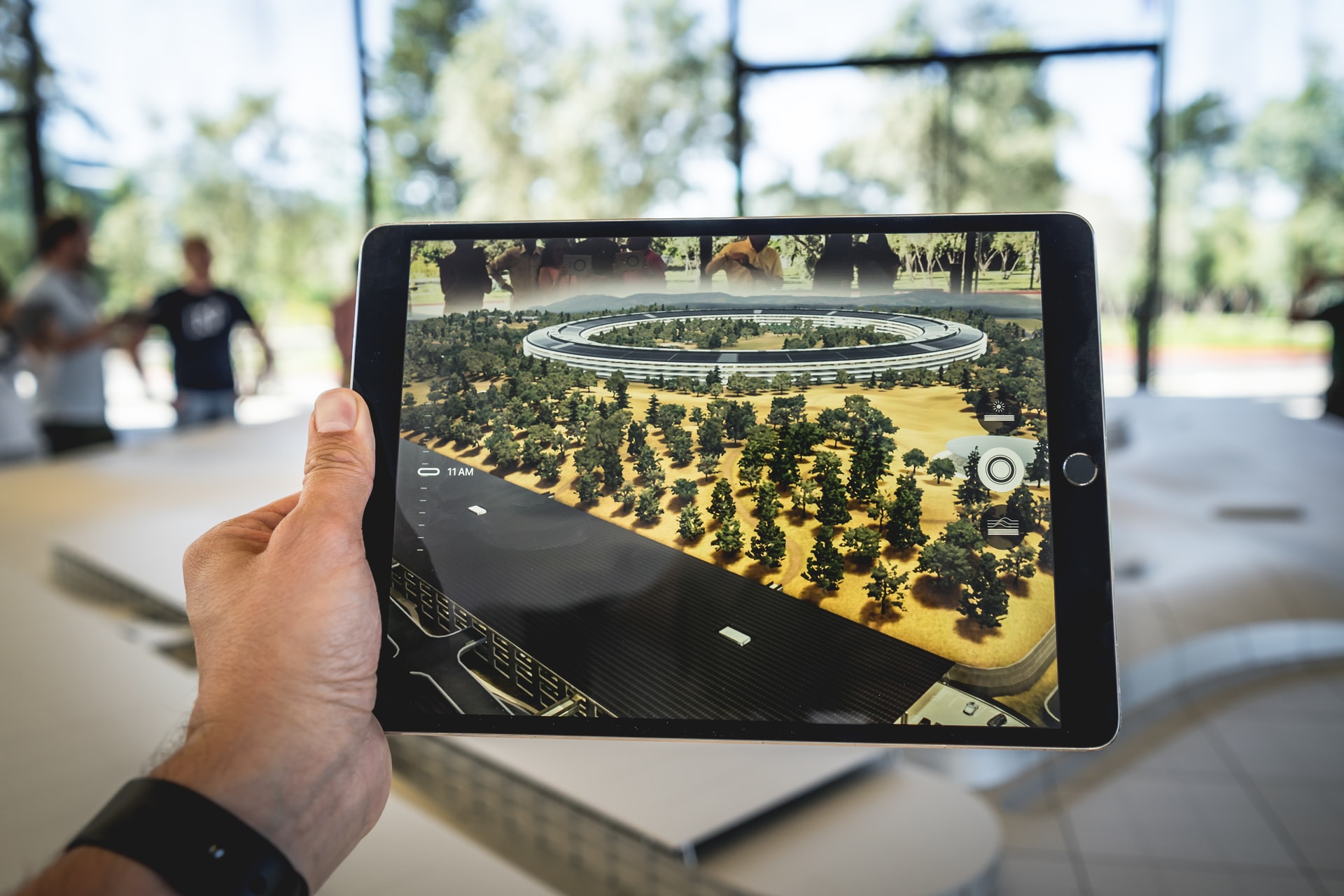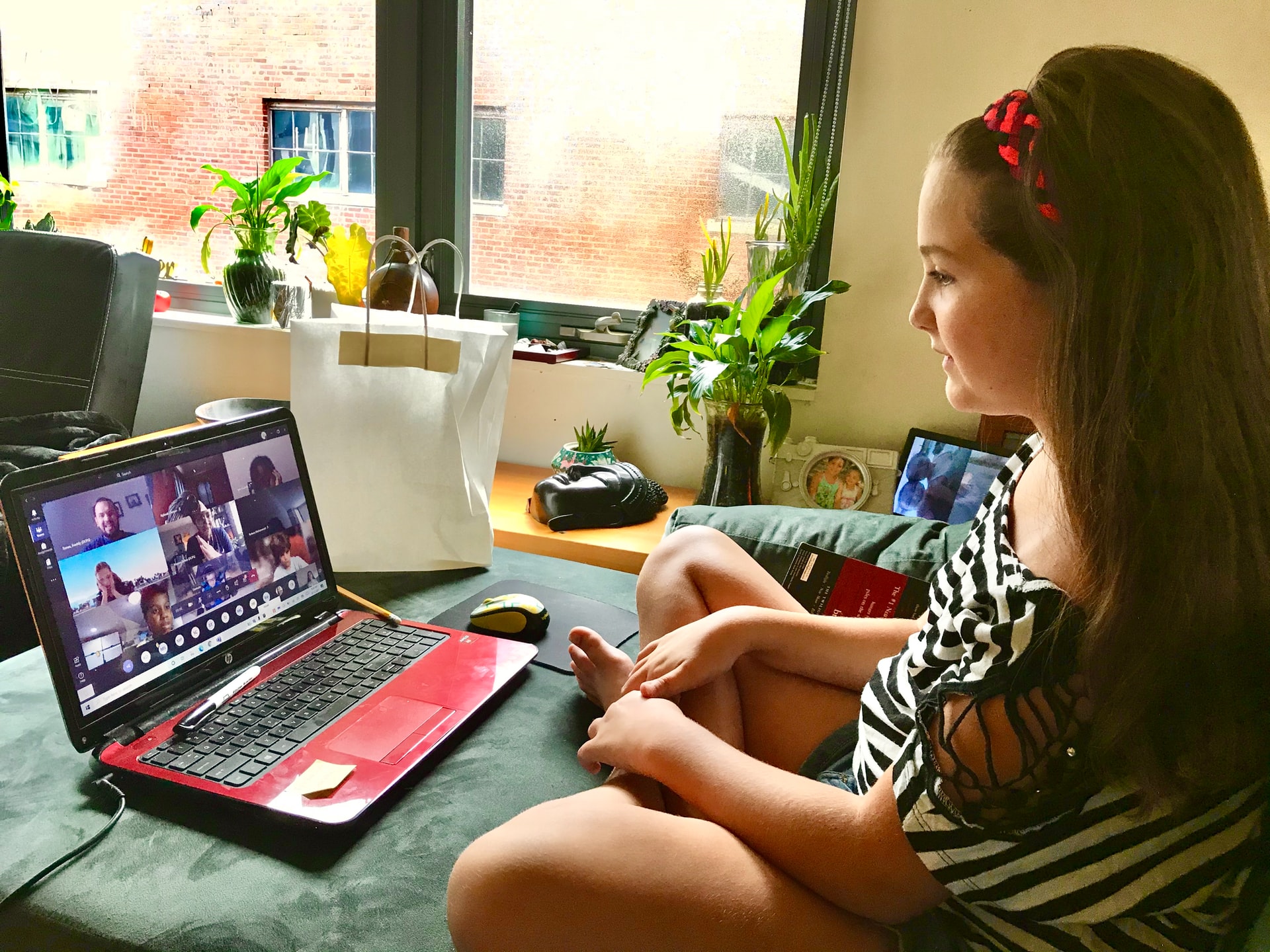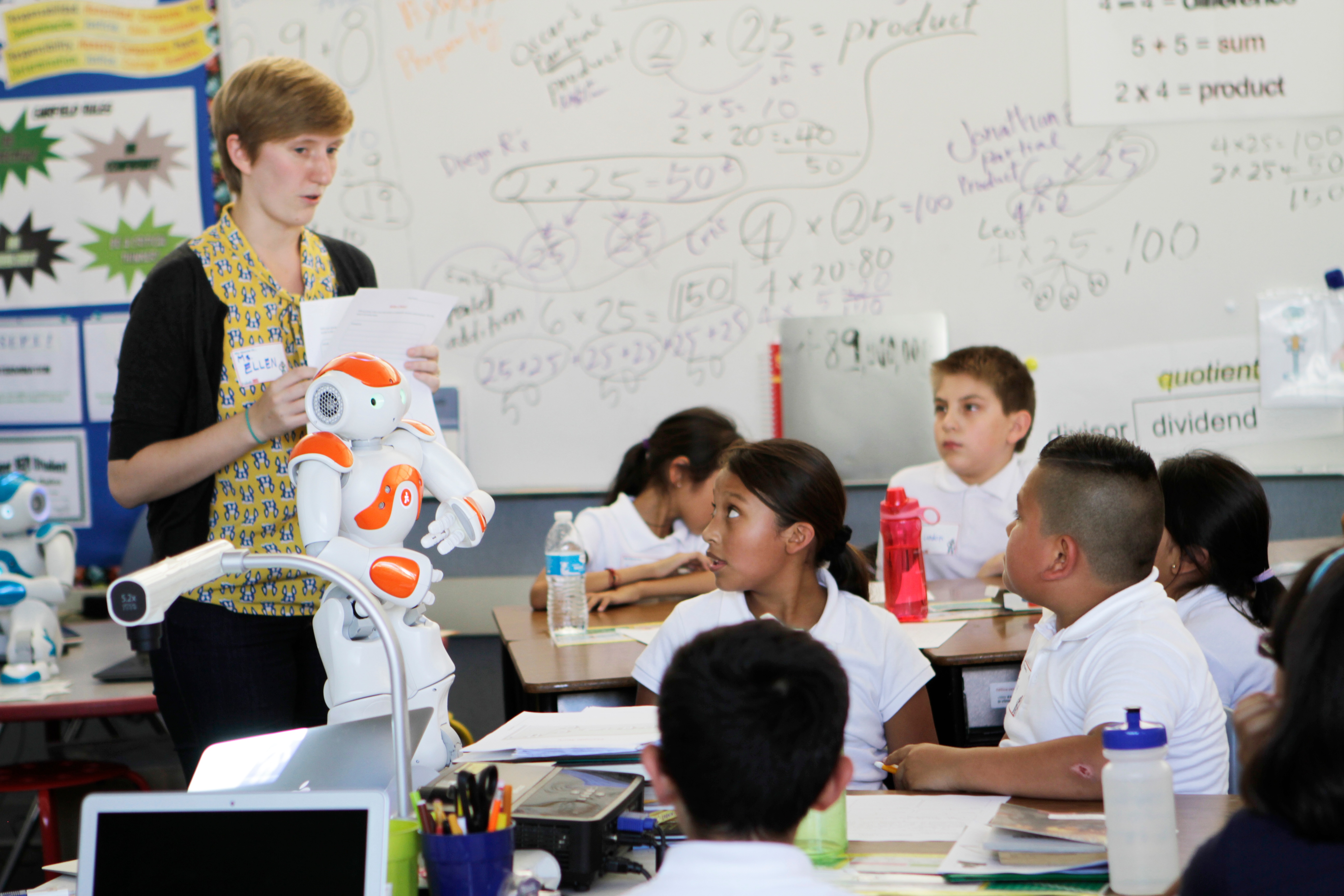RobotLAB Blog
Everything You Need To Know About Robotics in Businesses
Breakout rooms in remote learning: best practices and tips
 Photo by Annie Spratt on Unsplash
Photo by Annie Spratt on Unsplash
The massive shift to virtual learning has surely changed the way educators teach, but also the way students interact in the classroom. After going through several approaches to keep your class engaged, from gamification to flipped learning, let’s take a look at the best practices and tips to get the most out of breakout rooms in remote learning.
- 0 Comments
- Apr 26, 2021 10:00:00 AM
- Posted by Natalia Galvis
- Topics: Math, Math Book, EdTech, STEM, Curriculum, teachers, students, Technology, VR, Realidad Virtual, AR, Edchat, Gendergap, Digital Technology, Augmented Reality, teaching, online, Virtual Reality, virtual learning, lessons
Creating Opportunities for Project-Based Learning in Math
 Photo by Antoine Dautry on Unsplash
Photo by Antoine Dautry on Unsplash
Rigorous PBL units in middle and high school math answer the age-old student question: “When am I ever going to need this?”
Taking the plunge into project-based learning can seem difficult in an age when standardized testing seems to reign supreme as an indicator of achievement in secondary classrooms. But the pathway to project-based learning doesn’t have to be scary for secondary math teachers. Utilizing your own expertise and curriculum materials, you can create projects that are real, relevant, and rigorous, and that answers the age-old question, “When am I ever going to need this?”
- 0 Comments
- Apr 23, 2021 10:00:00 AM
- Posted by Natalia Galvis
- Topics: Math, Math Book, EdTech, STEM, Curriculum, teachers, students, Technology, VR, Realidad Virtual, AR, Edchat, Gendergap, Digital Technology, Augmented Reality, teaching, online, Virtual Reality, virtual learning, lessons
From classroom to boardroom: Building diverse workforce tech talent starts with STEM
By Danielle Rourke & Dr. Kendall Latham
 Photo by Blaire Harmon on Unsplash
Photo by Blaire Harmon on Unsplash
Encouraging more girls to pursue STEM learning and work in STEM fields should start in the early grades.
- 0 Comments
- Apr 22, 2021 10:00:00 AM
- Posted by Natalia Galvis
- Topics: Math, Math Book, EdTech, STEM, Curriculum, teachers, students, Technology, VR, Realidad Virtual, AR, Edchat, Gendergap, Digital Technology, Augmented Reality, teaching, online, Virtual Reality, virtual learning, lessons
Benefits Of Virtual And Augmented Reality For Pre School Education
By Eric Brown

Photo by Patrick Schneider on Unsplash
The new technology has brought a lot of developments in the world. One of the developments is the use of virtual reality and augmented reality. Virtual reality is a computer-generated environment with scenes that makes users feel immersed in that surrounding. One of the perfect examples of Virtual reality is video games. Virtual video games have made CSGO betting for example, even more, popular and fun.
Physical learning is an effective way for young children to get knowledge. However, technology also plays a significant role in the development of young children. Virtual reality can alter behaviors, patterns, attitudes, and thoughts.
Virtual reality prepares children for a world that will be dominated by robots and AI. They will have the required experience to handle the technology that will come their way. Moreover, virtual reality also plays a role in enhancing the lives of children with special needs. It helps them gain the experience they need to know how to operate robots and other technology tools.
- 0 Comments
- Apr 21, 2021 10:00:00 AM
- Posted by Natalia Galvis
- Topics: Math, Math Book, EdTech, STEM, Curriculum, teachers, students, Technology, VR, Realidad Virtual, AR, Edchat, Gendergap, Digital Technology, Augmented Reality, teaching, online, Virtual Reality, virtual learning, lessons
Top Distance Learning Trends: Which Technologies are The Most Popular?
By Karl Murphy
 Photo by Maria Thalassinou on Unsplash
Photo by Maria Thalassinou on Unsplash
Online education is the no hao of the XXI century. Covid-19 has increased the popularity of online learning and teaching. How can teachers and educators overcome the changes using the modern learning trends?
- 0 Comments
- Apr 20, 2021 10:00:00 AM
- Posted by Natalia Galvis
- Topics: Math, Math Book, EdTech, STEM, Curriculum, teachers, students, Technology, VR, Realidad Virtual, AR, Edchat, Gendergap, Digital Technology, Augmented Reality, teaching, online, Virtual Reality, virtual learning, lessons
6 Ways to Encourage Learning Success in Virtual Classrooms
By Devin Partida
 Photo by Chris Montgomery on Unsplash
Photo by Chris Montgomery on Unsplash
Educators strive to make learning fun and interactive, but the pandemic made that more challenging. Instead of bonding with students in person and creating group activities, teachers have to think outside the box to keep young people interested in heavy material. Here are six ways to encourage learning success in virtual classrooms that focus on STEM subjects.
- 0 Comments
- Apr 19, 2021 10:00:00 AM
- Posted by Natalia Galvis
- Topics: Robotics, About the Robots, EdTech, STEM, Curriculum, teachers, students, Technology, Edchat, Digital Technology, teaching, online, virtual learning, lessons, eLearning, Automation
Building Critical Thinkers by Combining STEM With History
 Photo by Andrew Neel on Unsplash
Photo by Andrew Neel on Unsplash
By asking students to explore the history of scientific discoveries, we get them to view their world with more wonder—and more skepticism—and condition their minds to think about causes and effects.
- 0 Comments
- Apr 15, 2021 10:00:00 AM
- Posted by Natalia Galvis
- Topics: Robotics, STEM, teachers, Coding, Robots,, students, Edchat, teaching, online, distance learning, collaboration
How AI is revolutionizing education
By Hosni Zaouali, CEO & Chief Innovation Designer, Tech-AdaptiKa
 Photo by Possessed Photography on Unsplash
Photo by Possessed Photography on Unsplash
AI has incredible potential, but it will work best when the human element remains
- 0 Comments
- Apr 14, 2021 10:00:00 AM
- Posted by Natalia Galvis
- Topics: Robotics, STEM, teachers, Coding, Robots,, students, Edchat, teaching, online, distance learning, collaboration
How Robots Can Make Teachers' Job Easier
By Gregory Chapman

Finding robots in the modern workplace and around the household is common. It assists humans with different tasks. The continuous growth of robotics technology, adaptability, and adoption in the modern world, will make more jobs easier.
Artificial intelligence-powered robots are already used for manufacturing, internet search engines, military combat, and rescue missions. They are taking a lot of human jobs lost to the pandemic at an alarming rate and will take more.
One sector that has largely not felt the threat of robots replacing humans is education. But there is a growing use of robots in educating kindergarten and elementary students. The question is, "When should teachers start feeling threatened by robotics in education"?
This article will take a cursory look at the pros and cons of robotics in education. And also how robots can make teachers' jobs easier.
- 0 Comments
- Apr 12, 2021 10:00:00 AM
- Posted by Natalia Galvis
- Topics: Robotics, STEM, teachers, Coding, Robots,, students, Edchat, teaching, online, distance learning, collaboration
6 strategies for better K-12 cybersecurity
By Renee Tarun
 Photo by Dan Nelson on Unsplash
Photo by Dan Nelson on Unsplash
As COVID made remote and hybrid learning an everyday reality, it also exposed network vulnerabilities, making cybersecurity awareness more essential than ever
- 0 Comments
- Apr 9, 2021 10:00:00 AM
- Posted by Natalia Galvis
- Topics: Robotics, STEM, Coding, Robots,, students, summer, Edchat, online, distance learning
Relevant Posts
- Augmented Reality: A Tool for Teaching Students Robot Programming
- Fostering Innovation Through Youth Education in STEM and EdTech
- How Parents Can Foster STEM Learning Beyond the Classroom
- How Robotics Cultivates a Deep Understanding of Mathematics in Students
- RobotLAB Receives EDTech Chronicle 2023 ‘BESTIE’ Award for Landmark Partnership with American Samoa Dept. of Education.
Subscribe to Email Updates
-
I Want To Learn MoreADDITIONAL INFORMATION
